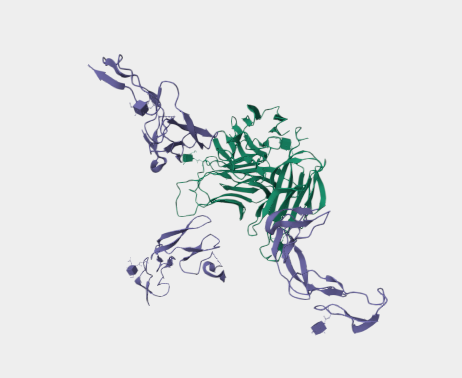Key features and details | |
Cat. No. | MABL-1696 |
Name | Anti-GITR mAbs |
Clone No. | AFD- 2D3 |
From | Recombinant Antibody |
Isotype | Engineer antibody |
Application | therapeutic, ELISA, FC |
Species Reactivity | Human, Rhesus Monkey |
Basic Information | |
Specificity | This antibody binds human and rhesus monkey GITR (TNFRSF18; CD357) and does not cross react with mouse GITR. This protein acts as a receptor for TNFSF18, which is involved in interactions between activated T-lymphocytes and endothelial cells and in the regulation of T-cell receptor-mediated cell death. |
Alternative Name | CD357; TNFRSF18; AITR; GITR; Tumor necrosis factor receptor superfamily member 18; Activation-inducible TNFR family receptor; Glucocorticoid-induced TNFR-related protein; 2D3-mHvKv |
UniProt | Q9Y5U5 |
Immunogen | The original antibody was generated by immunizing 6-8 weeks old female BALB/c mice with his-tagged human GITR protein. |
Application Notes | The initial binding characterization of the antibody was done using ELISA. The binding reactivity of this antibody to human, mouse and rhesus monkey GITR was determined using flow cytometry. This antibody was shown to cross react with human and rhesus monkey GITR and not mouse GITR. The binding affinity of the original mouse IgG1 antibody for human GITR was determined using surface plasmon resonance and was found to be Kd= 7.75X 10^(-10)M. The anti-tumor effect of this antibody was tested in vivo in a mouse colon cancer model. Murine MC-38 cells (colon adenocarcinoma cells) were injected subcutaneously in B-hGITR mice and treated with this antibody. It was reported that this antibody showed good tumor inhibitory effect (CN111763257). |
Antibody First Published | |
Note on publication | |
COA Information (For reference only, actual COA shall prevail) | |
Size | 100 μg Purified antibody. |
Concentration | 1 mg/ml. |
Purification | Protein A affinity purified |
Buffer | PBS with 0.02% Proclin 300. |
Concentration | 1 mg/ml. |
Storage Recommendation | Store at 4⁰C for up to 3 months. For longer storage, aliquot and store at - 20⁰C. |



